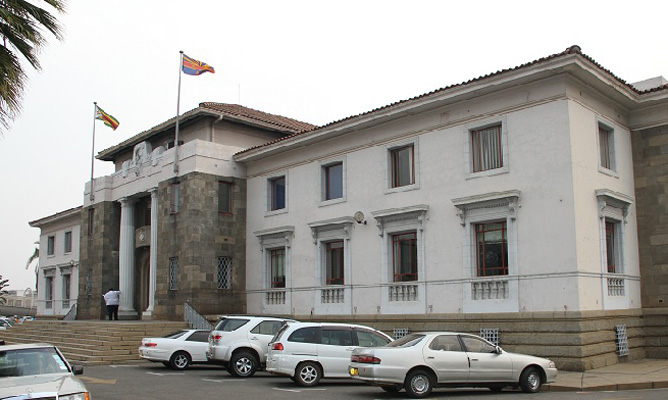
IT was the great philosopher Anonymous, who said that it always befuddles the mind how human beings become astute judges when looking at the conduct of others, but immediately become cautious lawyers when assessing their own conduct.
guest column: LEARNMORE ZUZE

We all can feel the truth of that statement and I found it imperative that we scrutinise this statement in light of the typhoid fight that has seen harsh exchanges between the city council and vendors in Harare.
There can be no running away from the fact that typhoid is now an “archived” ancient disease in most countries.
Its prevalence in any country today points to one thing: poor sanitation and poor hygiene.
Typhoid is widely spread by eating or drinking food or water contaminated with faecal matter of an infected person.
While at it, it must be stressed that typhoid can only spread in environments where human waste or urine are able to come into contact with food or drinking water.
History records that industrialisation, the automobile in particular, contributed greatly to the eradication of this disease, as it eliminated the public health hazards associated with having horse manure in public streets, which led to a large number of flies.
- Chamisa under fire over US$120K donation
- Mavhunga puts DeMbare into Chibuku quarterfinals
- Pension funds bet on Cabora Bassa oilfields
- Councils defy govt fire tender directive
Keep Reading
Water, vital for life on the one hand, is considered a conduit for the spread of the deadly disease.
Now, it would appear a war is simmering between the city council and the vendors in Harare over typhoid. Vendors were given a 48-hour ultimatum that has since lapsed, with the council promising to descend heavily on them.
On their part, vendors have vowed to defend to death their trade of survival.
It is real that Harare and the public’s health is under grave threat from this resurgent disease.
We have, therefore, witnessed brickbats being thrown at each other between council and vendors.
The ministerial taskforce’s findings point to the proliferation of vendors in the capital city as being at the root of the disease flourishing.
This posture by the joint taskforce of ministries of Health, Local Government, Environment and Small-to-Medium Enterprises, naturally draws fire, as it seeks, in a way, to absolve the local authority from any wrongdoing.
Unfortunately, the blame game can only engender animosity and revolt, as is currently happening.
Council must also introspect; it would be imprudent to hold in totality that food vending brought typhoid to Harare.
Vending has been happening for decades, with typhoid cases not occurring.
A holistic approach is needed; there is more to the existence of typhoid in Harare than postulated.
Casting aspersions can only have people or vendors pointing at council’s own contribution towards the current state of things.
The more than 130 cases so far reported in high-density areas certainly have nothing to do with food vending.
Blame can as well be squarely placed on the doorstep of the local authority. How so?
Burst sewers, old rusty pipes, raw sewage flowing in the streets and, more terrifyingly, dirty water from taps.
This said, it is self-evident that food vending can only be described in the spirit of an aggravating factor, but not a cause in itself.
As mentioned before, dirty water is the chief medium in the spread of typhoid.
In this regard, the general public has literally survived on grace to date as it is precisely green algae-infested water coming from taps that drives waterborne diseases like typhoid.
It is the mounds of uncollected garbage at street corners, which flies feast on, that are instrumental in the spread of the disease.
It is the filthy toilets with no running water that are key drivers in pushing the frontiers of the disease.
In several high-density suburbs, burst sewage pipes and human waste are a common sight, streaming through people’s homes.
This disturbing state of affairs has been left unattended for quite a long time and life has continued to be normal. However, due to the incessant rains, the waste is being washed away, thus, spreading disease at an alarming rate.
Heavy rains continue to pound on heaps of uncollected garbage in the central business district to the end, that a rich breeding ground for waterborne diseases has been created.
Typhoid in Harare is a child of a multiplicity of factors.
It is, therefore, of paramount importance that a wholesome attitude is embraced.
We can’t shift all blame to the vendor. An array of issues need urgent attention from the council.
Against this background, it behoves the local authority to look into its own operations before drawing battlelines with the vendors.
Like they say in philosophy: A good leader takes a little more than his share of the blame, a little less than his share of the credit.
True, vendors, because of their ever-increasing numbers daily, worsen the spread of airborne diseases, but the managing authority of the city must stop passing the buck on typhoid.
The local authority must attend to burst sewer pipes, provide clean water and timeously collect garbage on its own end of the stick towards overcoming typhoid.
In fact, council and the vendors must find each other in an amicable manner, as they are all crucial if the typhoid menace is to be defeated.
Learnmore Zuze writes in his own capacity. E-mail: [email protected]











